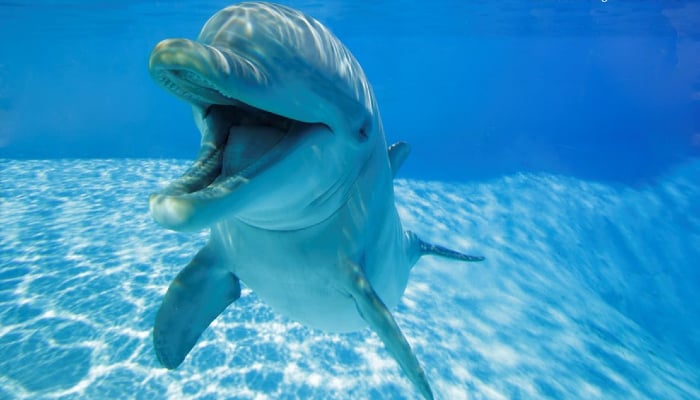
A new groundbreaking study revealed that, like human beings, dolphins also ‘smile’ at each other to avoid misunderstanding.
According to CNN, a study conducted by a group of researchers from Italy and France revealed that dolphins while playing an open-mouth gesture similar to a ‘smile.’
The researcher published in a journal iScience observed dolphins, 11 at the Zoomarine Rome and 11 dolphins at Planète Sauvage in western France while playing with each other, their trainer, and alone, and it was found that they exchanged smiles while playing.
The researchers suggested that the marine mammals communicate through smiles and tried to prevent their games from turning into real fights because of misunderstandings.
Meanwhile, dolphin communication expert Heather Hill, who was not involved in the study, told CNN, “I do think that the dolphins engage in an open mouth response during play situations, and it... does seem reasonable that it is a form of communication. I’m not comfortable calling it a smile, because they also use the open mouth displays in a lot of other contexts.”
She further added, “Should we really just interpret it as an exchange of open mouths that is occurring between two individuals to communicate, ‘Hey, we’re on the same page?’ Does that necessarily mean that because it’s play, it’s pleasurable, and therefore you and I are smiling at one another like a human or a chimpanzee might... I’m not sure I’m ready to take that next step.”
Furthermore, the latest study found that dolphins 92% of the time used their open-mouth expression only during play with other dolphins, not with human beings.
Hill suggested that the next step would be to use the same methodology of experiment on wilds because smiling behaviour occurs in the wilds too.















